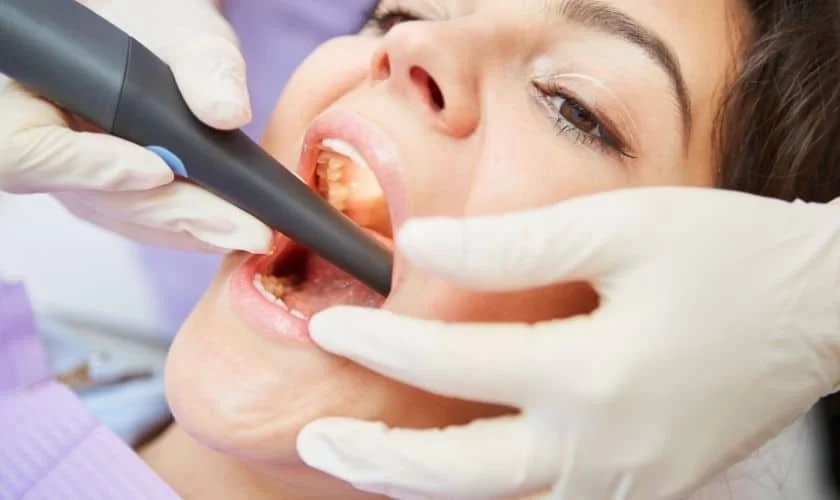
- Understanding-Night-Teeth-Grinding
- Causes-Of-Teeth-Grinding-At-Night
- Practical-Ways-To-Stop-Teeth-Grinding-At-Night
- Real-Life-Examples-And-Expert-Insights
- When-To-See-A-Professional-For-Teeth-Grinding
1. Understanding Night Teeth Grinding
Teeth grinding at night, medically known as bruxism, is a surprisingly common condition that affects millions worldwide. Many people are unaware they grind their teeth until symptoms like jaw pain, headaches, or worn teeth appear. Bruxism happens involuntarily during sleep and can damage your teeth over time if left unchecked.
Understanding the nature of night teeth grinding is the first step towards finding effective solutions. It is not just a dental issue but often tied to stress, anxiety, and even sleep disorders. In this sense, managing bruxism means looking beyond just the physical symptoms and considering emotional and neurological factors as well.
The Impact of Night Teeth Grinding on Oral Health
Consistent grinding can wear down enamel, cause tooth fractures, and lead to gum recession. For example, Sarah, a 32-year-old teacher, noticed her teeth becoming increasingly sensitive and cracked after months of nighttime grinding caused by high work stress. This case illustrates how serious the consequences of untreated bruxism can be.
How Common Is Bruxism?
Studies suggest that nearly 8-10% of adults experience some form of night teeth grinding. The frequency and intensity can vary greatly, and while some experience occasional episodes, others may grind every night, causing significant damage.
2. Causes of Teeth Grinding at Night
Bruxism rarely has a single cause. Instead, it often results from a combination of physical, psychological, and lifestyle factors. Here we explore the main contributors:
Stress and Anxiety
Emotional stress is perhaps the most common trigger. When people face high-pressure situations, their body reacts by tightening muscles, including those controlling the jaw. This can lead to involuntary grinding at night. Many patients report their teeth grinding worsens during periods of anxiety.
Sleep Disorders and Abnormal Bite
Sleep apnea and other sleep disturbances often correlate with bruxism. Disrupted sleep cycles cause increased muscle activity in the jaw. Additionally, an uneven bite or misaligned teeth can create discomfort that triggers grinding.
Lifestyle Factors
Excessive caffeine or alcohol intake, smoking, and certain medications can increase the likelihood of grinding teeth during sleep. These factors stimulate the nervous system or alter muscle relaxation, making bruxism more likely.
3. Practical Ways to Stop Teeth Grinding at Night
Addressing teeth grinding effectively requires a multi-faceted approach that combines lifestyle changes, protective measures, and sometimes professional help.
Stress Management Techniques
Since stress is a major trigger, incorporating relaxation techniques can significantly reduce nighttime grinding. Mindfulness meditation, deep breathing exercises, and yoga are proven methods to calm the nervous system and reduce muscle tension.
Using a Night Guard
One of the most widely recommended remedies is wearing a custom-fitted night guard. This protective device cushions your teeth, preventing wear and reducing jaw strain. While over-the-counter guards exist, personalized ones provided by dental professionals offer superior comfort and effectiveness.
Improving Sleep Hygiene
Good sleep habits, like maintaining a consistent bedtime, avoiding screens before bed, and creating a calm sleeping environment, can help decrease the severity of bruxism. For some, treating underlying sleep disorders with professional help is crucial.
Adjusting Lifestyle Habits
Reducing caffeine and alcohol, quitting smoking, and avoiding stimulants in the evening support muscle relaxation and improve sleep quality. Simple dietary adjustments can therefore make a surprising difference.
If you are seeking the best night guards or specialized dental products to stop teeth grinding at night, Dentistry Toothtruth offers a trusted range of solutions tailored to your needs.
4. Real-Life Examples and Expert Insights
John, a 40-year-old software developer, struggled with jaw pain and frequent headaches for years before realizing he was grinding his teeth at night. After consulting a dentist and adopting stress management alongside a night guard, his symptoms dramatically improved. John’s story is a testament to how a combined approach can effectively manage bruxism.
Experts emphasize that early intervention is key. Dr. Emily Harris, a dentist specializing in bruxism treatment, notes, “Many patients underestimate the long-term damage caused by teeth grinding. Professional evaluation combined with lifestyle modifications can prevent costly dental repairs and improve quality of life.”
Technology in Bruxism Management
Emerging technologies like biofeedback devices are becoming popular. These gadgets alert you when grinding begins during sleep, encouraging relaxation of jaw muscles. Though still evolving, such tools offer promising support alongside traditional treatments.
5. When to See a Professional for Teeth Grinding
If you notice persistent jaw soreness, tooth damage, or frequent headaches, it is important to consult a dental professional. Early diagnosis and treatment can prevent irreversible damage.
Dental visits typically involve examining tooth wear, jaw movement, and possibly sleep studies to uncover underlying issues. Customized treatment plans often combine night guards, behavioral therapy, and medical referrals if needed.
For reliable advice and to explore tailored products like night guards or anti-grinding treatments, visit Dentistry Toothtruth where experts can guide you through the best options.







 Loganville Family Dentistry4.0 (418 review)
Loganville Family Dentistry4.0 (418 review) Greco Orthodontics5.0 (98 review)
Greco Orthodontics5.0 (98 review) Cerritos Dental Surgery5.0 (137 review)
Cerritos Dental Surgery5.0 (137 review) Eugene Y. Yang, DDS, INC4.0 (104 review)
Eugene Y. Yang, DDS, INC4.0 (104 review) Dee for Dentist4.0 (173 review)
Dee for Dentist4.0 (173 review) Emerson Family Dental5.0 (273 review)
Emerson Family Dental5.0 (273 review) The Importance of Oral Health Education During Pregnancy for a Healthy Pregnancy
The Importance of Oral Health Education During Pregnancy for a Healthy Pregnancy Best Tips for Brushing Your Teeth Properly for Healthy Gums: Essential Techniques for Oral Health
Best Tips for Brushing Your Teeth Properly for Healthy Gums: Essential Techniques for Oral Health Why Skipping Dental Checkups Can Lead to Bigger Oral Health Problems
Why Skipping Dental Checkups Can Lead to Bigger Oral Health Problems Advantages of Porcelain Dental Restorations
Advantages of Porcelain Dental Restorations How Can Diabetes Cause Tooth and Gum Problems? Preventing and Managing Oral Health Issues
How Can Diabetes Cause Tooth and Gum Problems? Preventing and Managing Oral Health Issues Healthy Habits for Promoting Good Oral Health and Hygiene: Tips for a Healthy Smile
Healthy Habits for Promoting Good Oral Health and Hygiene: Tips for a Healthy Smile